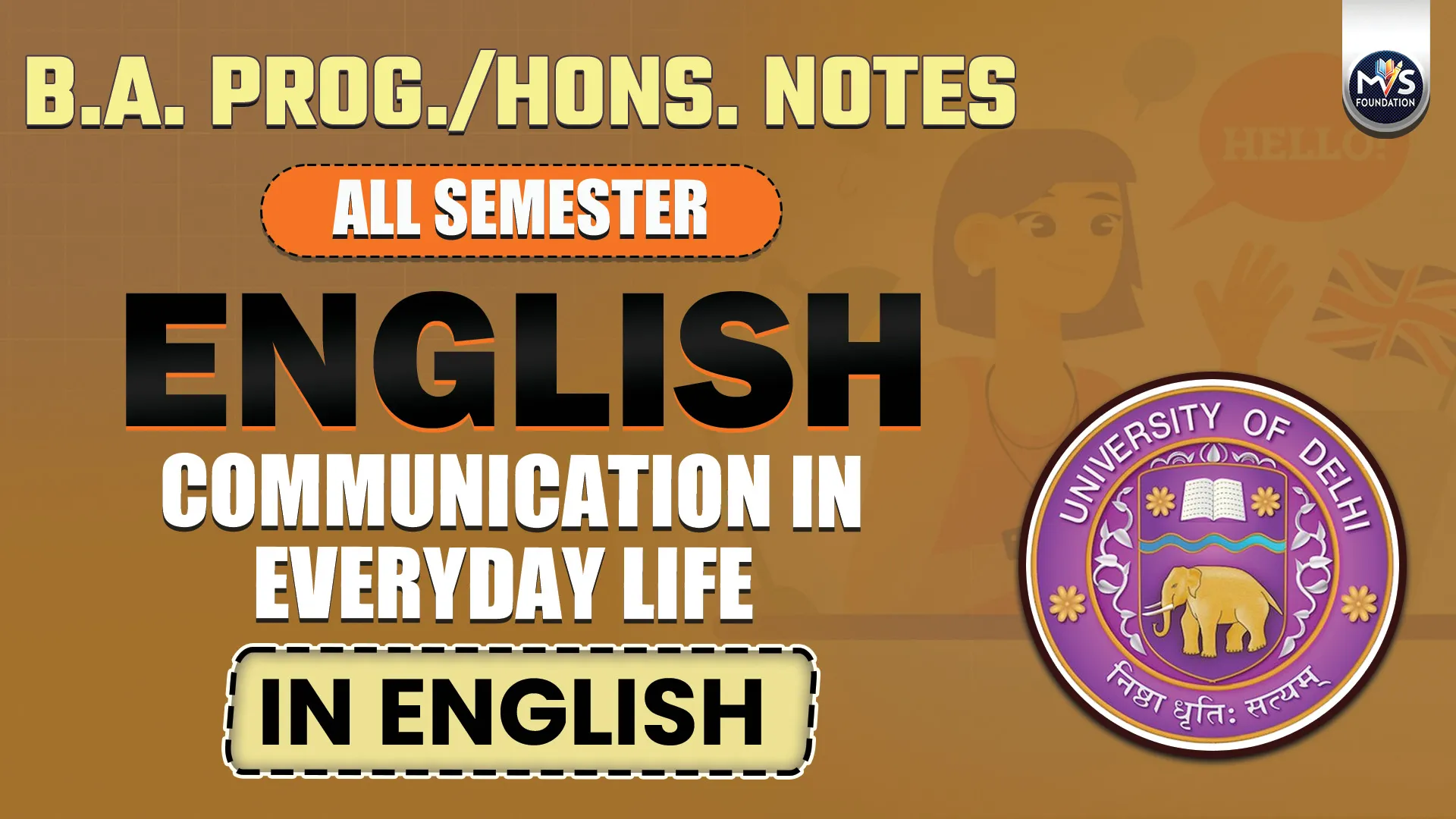
Get in Touch
We will get back to you within 24 hours.
Welcome to MVS Blog

Q-1 Define Communication and describe its nature, types and elements.
Answer -
Introduction
Communication is the transfer of information (a message) between a sender and a recipient. It can be influenced by your emotions, the cultural situation, the medium used to communicate, and your location. Two people can interpret the identical message in different ways depending on their personal influences. Communication can be subtle such as eye contact/ lack of eye contact and general body language. Effective communication skills are important skills to possess, both in life and in the workplace.
Keith Davis –
“Communication means an exchange of facts, ideas, opinions, information or emotions
by two or more persons”.
Newman and Summer –
“Communication is the sum of all the things one person does when he wants to create understanding in the mind of another.
Allen-
"Communication is the sum of all the things one person does when he wants to create understanding in the mind of another. It is a bridge of meaning. It involves a systematic and continuous process of telling, listening and understanding."
Nature of Communication (Characteristics of Communication)
1. Two-way process - Communication is a two-way process in which information is sent and received and understood. This emphasises on the feedback aspect of communication i.e.; the sender of the message must get the necessary response (or
reaction) of the recipient of the communication.
2. Ongoing Process- Without communication, there cannot be any human activity. All human activities are based on communication. Thus, communication is an ongoing process.
3. Required in all managerial functions- Communication is required in all managerial functions. It is an integral part of directing and assumes greater significance at directing stage.
4. Function of every manager- Communication is a function of every manager and hence it is pervasive managerial function.
5. Creation of mutual understanding- The basic purpose of communication is to create mutual understanding by providing or seeking information, persuading or influencing others and eliciting actions.
Types of communication
1.Verbal communication:- Verbal communication is the sharing of information between individuals by using speech. Individuals working within a business need to effectively use verbal communication that employs readily understood spoken words, as
well as ensuring that the enunciation, stress and tone of voice with which the words are expressed is appropriate.
2.Non-Verbal communication:- Non-verbal communication: Listening is the ability to accurately receive and interpret messages in the communication process. Listening is a key to all effective communication. Without the ability to listen effectively, messages are easily misunderstood. As a result, communication breaks down and the sender of the message can easily become frustrated or irritated. Listening is so important that many top employers provide listening skills training for their employees. This is not surprising when you consider that good listening skills can lead to better customer satisfaction, greater productivity with fewer mistakes, and increased sharing of information that in turn can lead to more creative and innovative work.
Benefits of effective communication
Effective communication skills reduce misunderstandings and build empathy and
understanding between people, especially in formal relationships, where interactions are often brief and impersonal. Here’re a few major ways in which effective communication
helps:
1. Creates better relationships
Relationships built on the solid ground of good communication tend to be stronger and can even help participants find opportunities for personal growth. At a fundamental level, better communication builds trust and is particularly effective in improving teamwork. When multiple people work toward the same goal, a clear and straightforward communication strategy boosts productivity and speeds up problemsolving by reducing misunderstanding and confusion.
2. Helps handle conflicts better
As we work our team-building muscles and strive for strong communication, we understand all sides of a conflict to provide better resolution. Many disagreements happen due to miscommunications or individuals not being heard. Giving everyone the chance to speak and explain their point of view makes it easier to prevent conflict and misunderstandings.
3. Builds empathy
When we become active listeners, we boost our personal and professional relationships through a greater understanding of the people around us and their points of view. Maintain eye contact (without staring) when talking face-to-face and look for nonverbal
clues from facial expressions and body language. Paying attention this way helps us get a fuller picture of our conversation partner’s emotional state and helps us respond thoughtfully.
4. Increases self-awareness
We develop our soft skills and awareness as we continue to be attentive and understanding. We recognize our own emotions and notice how they change in certain circumstances. Being self-aware is one of the most important factors in effectively
interacting with others.
5. Builds trust
The benefits of effective communication include encouraging trust in other people. If our conversation partners know that we value truth and authenticity, they’re more likely to trust and build stronger relationships with us. When we have conversations with other great communicators, we reinforce this skill in each other through attention and feedback.
70’s of communication
0 Response